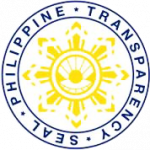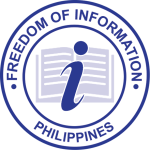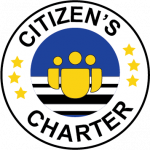- GOVPH
- About BOC
- Issuances
- Aduana Library
- Memoranda
- Memoranda for Reference Values
- Customs Administrative Order (CAO)
- Customs Administrative Order (CAO) 2025
- CUSTOMS ADMINISTRATIVE ORDER (CAO) 2024
- Customs Administrative Order (CAO) 2023
- Customs Administrative Order (CAO) 2022
- Customs Administrative Order (CAO) 2021
- Customs Administrative Order (CAO) 2020
- Customs Administrative Order (CAO) 2019
- Customs Administrative Order (CAO) 2018 and Older
- Customs Memorandum Order (CMO)
- Customs Memorandum Circular (CMC)
- Customs Memorandum Circular (CMC) 2025
- Customs Memorandum Circular (CMC) 2024
- Customs Memorandum Circular (CMC) 2023
- Customs Memorandum Circular (CMC) 2022
- Customs Memorandum Circular (CMC) 2021
- Customs Memorandum Circular (CMC) 2020
- Customs Memorandum Circular (CMC) 2019
- Customs Memorandum Circular (CMC) 2018 and Older
- Customs Special Order (CSO)
- Custom Training Circular (CTC)
- Joint Memorandum Orders (JMO)
- Trade
- News Room
- Port Updates
- HR Corner
- Quicklinks
- Infographics
- Bureau of Customs Webinar
- Auction and Sales
- Bid Opportunities
- Invitation to Bid / Request for Quotation / Invitation for Negotiated Procurement / Notice to Conduct Direct Contracting – 2023
- Invitation to Bid / Request for Quotation / Invitation for Negotiated Procurement / Notice to Conduct Direct Contracting – 2022
- Invitation to Bid / Request for Quotation / Invitation for Negotiated Procurement / Notice to Conduct Direct Contracting – 2021
- Invitation to Bid / Request for Quotation / Invitation for Negotiated Procurement / Notice to Conduct Direct Contracting – 2020
- Invitation to Bid / Request for Quotation / Invitation for Negotiated Procurement / Notice to Conduct Direct Contracting – 2019
- Invitation to Bid / Request for Quotation / Invitation for Negotiated Procurement / Notice to Conduct Direct Contracting
- Bid Documents
- Bid Supplement
- Summary of Awarded Contracts
- Summary of Contracts Awarded 2023
- Summary of Contracts Awarded 2022
- Summary of Contracts Awarded 2021
- Summary of Contracts Awarded 2020
- Summary of Contracts Awarded 2019
- Summary of Contracts Awarded 2018
- Summary of Contracts Awarded 2017
- Summary of Contracts Awarded 2016
- Summary of Contracts Awarded 2015
- Summary of Contracts Awarded 2014
- Summary of Contracts Awarded 2013
- Annual Procurement Plan
- Customs Knowledge Resources
- References
- Gender Equality and Diversity
- Philippine National Trade Repository
- Philippine Tariff Finder
- Authorized Economic Operator

GUIDELINES AND PROCEDURES ON CUSTOMS CLEARANCE OF INTERNATIONAL DONATIONS AVAILING OF DUTY AND/OR TAX EXEMPTION DURING CALAMITIES
As a general rule, importations into the Philippines are subject to customs duties and taxes unless there is a specific legal basis for exemption from duties and/or taxes. Importation of goods donated from abroad are only exempt from duties and/or taxes under certain circumstances. These guidelines explain those circumstances, and the procedures which must be followed to avail of duty and/or tax exemptions. They are meant as a guide for senders and recipients of donated goods from abroad. Importation of donated goods which do not meet the criteria explained in these guidelines are not exempt from duties or taxes, and must follow the normal Customs laws, rules, regulations, and procedures for processing of imports.
A. Circumstances at which donated imported goods can be duty- and/or tax-exempt:
All of the following conditions must be fulfilled for the donated imported goods to be duty-free or both duty- and tax-free:eu
- The Consignee of the imported goods must fall into one of the categories listed below. The procedures to be followed depend on which category the Consignee falls into. The Bill of Lading (B/L) or Airway Bill (AWB) of any import transaction identifies who the Consignee on the shipment is and the corresponding procedures are followed.
| If the Consignee is: | Duty and Tax Treatment |
| 1. National Government Agency (NGA) | Duties and taxes are automatically charged to the NGA’s account. Donor need not pay any duties and taxes.Procedures described in Section C. |
| 1. DSWD-registered, licensed, and/or accredited Social Welfare Development Agency (SWDA) | Duty-exempt if procedures are followed.Not tax-exempt.Procedures described in Section C. |
| 1. Foreign Embassies and International Organizations / Specialized Agencies* | Duty-and tax-exempt if procedures are followed.Coordinate with the Department of Foreign Affairs (DFA) or Philippine Embassy/Consular Office in the country of origin for the procedures. |
| 1. Others | Neither duty-exempt nor tax-exempt. |
*See Appendix I for list of international organizations / specialized agencies
For all the scenarios above, other charges such as storage, demurrage, arrastre, wharfage, trucking / transportation, warehousing, stripping / stuffing, etc. are not covered by the privileges. As such, the consignee is required to settle the mentioned charges for goods to be released.
- The donated imported goods must not be prohibited imports. The Tariff and Customs Code of the Philippines, Section 101, other laws, and other regulations issued by different government agencies, define certain goods whose importation into the Philippines is prohibited. Examples include adulterated or misbranded food and drugs. Moreover, the following are also prohibited:
- Used clothing
- Medicines
- without English translations in their immediate labels
- not listed in the Philippine National Formulary (http://ncpam.doh.gov.ph/index.php/pnf1/approved-pnf-medicines-samp) or registered in an FDA-counterpart agency in the country of origin
- with expiry date less than six (6) months upon arrival
- If the donated imported goods are regulated imports, the Consignee must obtain an import permit or clearance from the relevant Philippine government agency which regulates importation of these goods. Various laws and other regulations issued by different government agencies define certain goods whose importation into the Philippines are restricted or regulated. Some examples of commonly donated goods, and the government agencies which issue the import permits for such goods, are given below:
| Regulated Goods | Issuer of Import Permit / Clearance | Contact Details |
| Medicine, medical devices and equipment | Food and Drug Administration | DRUGS / MEDICINES:Ms. Maria Lourdes SantiagoOIC, Center for Drug Regulation and ResearchTel #: 857.19.00 loc. 1331 |
| MEDICAL DEVICES & EQUIPMENT: | ||
| Dir. Agnette P. Peralta | ||
| Center for Device Regulation, Radiation Health and Research | ||
| Tel #: 749.94.43/711.68.24 | ||
| Rice | National Food Authority | Mr. Christopher T. PatdoGrains Operation OfficerMs. Lisette C. PinedaEconomist |
| Tel #: 454.18.90 | ||
| Toys | Food and Drug Administration | Ms. Maria Theresa GutierrezOIC, Center for Cosmetics Regulation and ResearchTel #: 857.19.00 loc. 8113 |
B. Government Agencies’ Point Persons
| Government Agencies | Contact Persons | |
| NAIA | Port of Mactan | |
| Bureau of Customs (BOC) | Atty. Agnes D. Dominez | Mr. Roy R. Gonzaga |
| Chief, Law Division | Warehouseman III | |
| (02) 879.50.88 | +63.916.552.87.38 | |
| (02) 831.34.21 | ||
| Ms. Maria Teresita Juliet G. Malco | ||
| Asst. Customs Operations Officer / BOC Point Person for Foreign Donations | ||
| +63.917.746.11.68 | ||
| Collection Service Division | ||
| (02) 526.63.93 | ||
| (02) 527.37.27 | ||
| Department of Social Welfare & Development (DSWD) | Mr. Patrick John G. Reyes | |
C. Procedures to be Followed if the Consignee is a National Government Agency or a DSWD-Registered, Licensed, and/or Accredited Social Welfare Development Agency (SWDA) (Scenarios a and b in Section A.1)
Pre-Arrival Activities:
- The Sender advises the Consignee of the donation to ensure that the Consignee is willing and prepared to receive it.
- The Sender of the goods prepares a Deed of Donation to the Consignee. The Deed of Donation must be consularized or authenticated by the Philippine Consulate in the domicile of the Sender.
- The Consignee executes a Deed of Acceptance of the donation from the Sender.
- If any of the goods being imported is a Restricted or Regulated Good, the Consignee obtains an Import Permit or Clearance from the relevant Philippine Government Agency (Refer to the Regulated Imports List by clicking this link:/users-guide-to-the-bureau-of-customs-regulated-imports-list/).
- Once the goods arrive in the Philippines, either of the following happens:
- If consignee is an NGA, the consignee submits to the Collection Service Division of the Bureau of Customs the following documents:
- Notarized Certificate of Undertaking
- Notarized Certificate of Official Importation (See Annex for the template)
- Tentative Statement of Account (See Annex for the template)
- Consularized Deed of Donation
- Deed of Acceptance
- Bill of Lading or Airway Bill (endorsed by shipping agent or airline)
- Itemized Packing List
- Invoice (required for calculation of duties and taxes)
- Filled-up Import Entry and Internal Revenue Declaration Entry (IEIRD, a form available at the BOC Administrative Division at the Port of Discharge)
- If consignee is a DSWD-registered, licensed, and/or accredited SWDA, the consignee submits to DSWD the following documents:
- Consularized Deed of Donation
- Deed of Acceptance
- Bill of Lading or Airway Bill (endorsed by shipping agent or airline)
- Itemized Packing List
- Invoice (required for calculation of duties and taxes)
- Import Permit or Clearance (if any of the goods being imported is a restricted or regulated good)
- If consignee is an NGA, the consignee submits to the Collection Service Division of the Bureau of Customs the following documents:
- If Consignee is a DSWD-registered, licensed, and/or accredited SWDA, DSWD issues an indorsement to DOF requesting for approval of the request for duty exemption.
- Depending on who the Consignee is, either of the following happens:
- If Consignee is an NGA, the Director of Collection Service of BOC issues a memorandum to the District Collector of the Port of Discharge indicating that they:
- Release shipment without pre-payment of duties and taxes which are to be charged to the NGA’s GAA account, and
- Issue the final Statement of Account to the NGA thru the Collection Service within five (5) days from release of shipment.
- If Consignee is a DSWD-registered, licensed, and/or accredited SWDA, DOF issues approval for duty exemption.
- If Consignee is an NGA, the Director of Collection Service of BOC issues a memorandum to the District Collector of the Port of Discharge indicating that they:
Port of Discharge Activities:
- The Consignee or its authorized representative files a formal entry in the Electronic to Mobile (e2m) system through the Valued Added Service Provider (VASP). [Notes: {1} Consignee has to be accredited by Customs in order to file entry in e2m. See the Customs Memorandum Order (CMO) on accreditation by clicking this link: /wp-content/uploads/2014/03/CMO-4-2014.pdf {2} If Consignee is an NGA, Box 37 Procedure should indicate the code 4000 DPG].
- The Consignee or its authorized representative proceeds to the BOC Formal Entry Division of the Port of Discharge and submits the following documents:
- Filled-up Import Entry and Internal Revenue Declaration (IEIRD)
- Applicable documents indicated in Section 5 above
- Memorandum issued by the Director of Collection Service (if Consignee is NGA)
- DOF approval (if Consignee is DSWD-registered, licensed, and/or accredited SWDA)
- Temporary Assessment Notice (issued by the VASP after filing of entry in e2m)
- BOC Formal Entry Division at the Port of Discharge appraises and/or examines the goods. Any prohibited goods or restricted / regulated goods without Import Permit / Clearance are seized and forfeited in favor of the government.
- After final assessment and/or examination, the e2m system automatically debits from the Consignee’s account on the authorized agent bank the total amount of charges for payment.
- Shipment is cleared for release through the Online Release System (OLRS).
- Consignee or its authorized representative settles other charges of private entities, i.e. storage, demurrage, trucking / transportation, arrastre, warehousing, stripping / stuffing, etc.
- Goods are released.
- If Consignee is an NGA, after five (5) days from release of shipment, the District Collector of the Port of Discharge issues the final Statement of Account (SOA) to the Consignee thru the Collection Service.
D. Bureau of Customs (BOC) Charges:
| BOC CHARGES | APPLICABLE RATE | |
| A. Customs Documentary Stamp (CDS) | Fixed rate of P265.00 | |
| B. Import Processing Fee (IPF) | Dutiable Value of Shipment | IPF/Entry |
| Up to P250,000 | P 250.00 | |
| Over P250,000 to P500,000 | P 500.00 | |
| Over P500,000 to P750,000 | P 750.00 | |
| Over P750,000 | P 1000.00 | |
| C. Container Security Fee (CSF) – for containerized shipments only | $5.00 x BOC-determined Peso-Dollar Exchange Rate per Twenty-Foot Equivalent Unit [TEU] container | |
| D. Import Entry and Internal Revenue Declaration (IEIRD) Form | P40.00 per set | |
| E. Customs Duty | Up to 65% of Dutiable Value depending on the tariff code of the goods | |
| F. Value Added Tax (VAT) | 12% of Total Landed Cost* | |
*Total Landed Cost refers to the sum of Dutiable Value, Bank Charges (if any), Customs Duty, Brokerage Fee, Arrastre Charge, Wharfage Due, Customs Documentary Stamp, and Import Processing Fee.
ABOUT GOVPH
All content is in the public domain unless otherwise stated.






